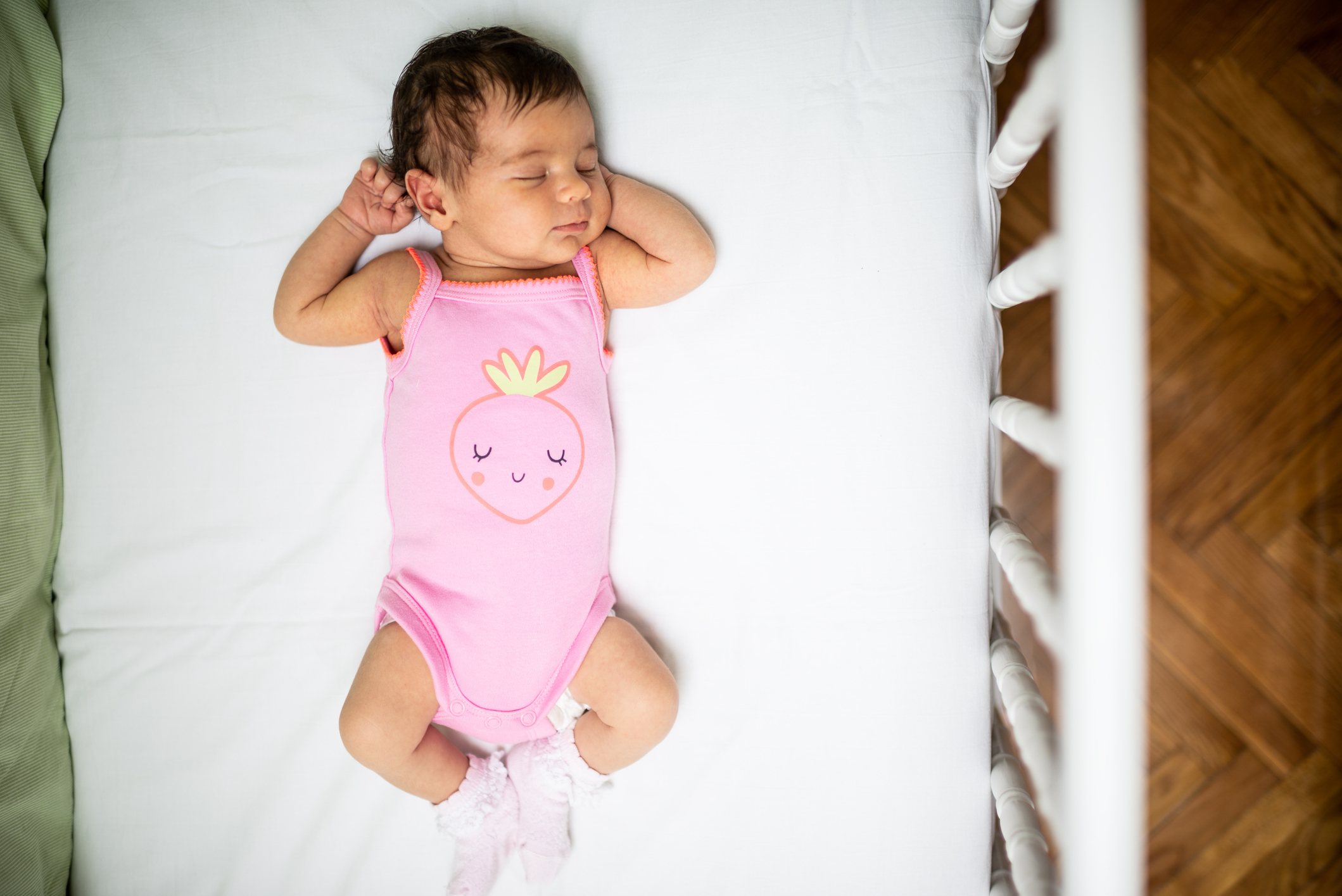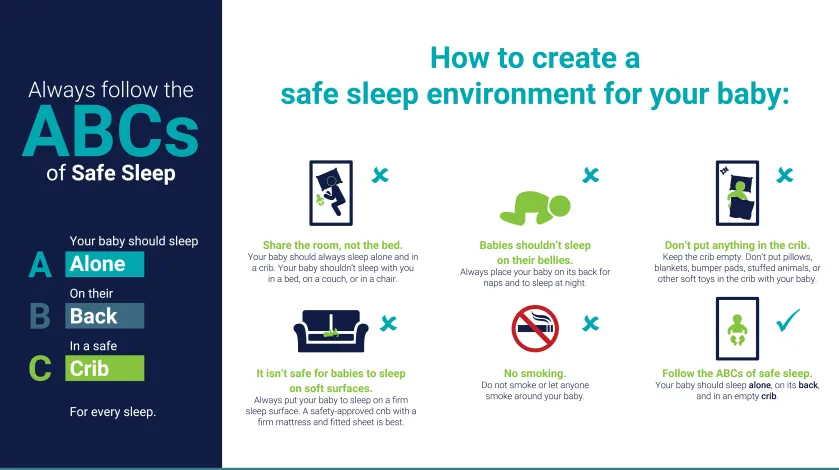The ABCs of Infant Safe Sleep
Author

South Shore Health
One source of stress for many new parents is ensuring their child sleeps safely. But in the rush that follows your return home from the hospital with your new baby, it can be easy for parents to forget how babies should sleep.
The key things to keep in mind to keep your baby safe while he or she sleeps are as simple as ABC.
The ABCs of Infant Safe sleep:
Your baby should sleep
Alone
On his or her
Back
In an safe
Crib
Download our ABCs of Safe Sleep postcard to keep near your child’s crib, or to share with other caregivers.
Here are some additional things to keep in mind when it comes to creating a safe sleep environment for your baby:
Share the room, not the bed
Your baby should always sleep alone and in a crib. Your baby should not sleep in the bed with an adult, on a couch, or in a chair.
It isn’t safe for babies to sleep on soft surfaces
Always put your baby to sleep on a firm sleep surface. A safety-approved crib with a firm mattress and fitted sheet is best.
Don’t put anything in the crib
Keep the crib empty. Don’t put pillows, blankets, bumper pads, stuffed animals, or other soft toys in the crib with your baby.
Babies shouldn’t sleep on their bellies
Always place your baby on his or her back for naps and to sleep at night.
No smoking
Don’t smoke near your baby, and don’t let anyone else smoke near your baby.
Research shows that by taking these steps, parents can keep their babies safer from the causes of Sudden Unexpected Infant Deaths (SUID), which kills thousands of infants each year.
South Shore Health is proud to be one of four Massachusetts health care organizations that has committed to a nationwide initiative to improve the likelihood that infant caregivers receive consistent, evidence-based instruction about safe sleep as recommended by the American Academy of Pediatrics (AAP). The initiative is led by the National Action Partnership to Promote Safe Sleep Improvement and Innovation Network (NAPPSS-IIN).
Learn more about South Shore Health's safe sleep initiative.
Author

South Shore Health








